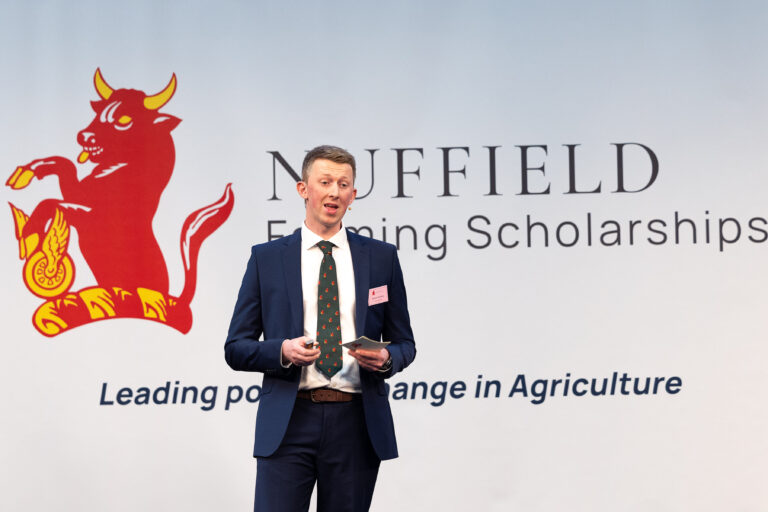Scottish farm operations manager Alistair McBain has published his Nuffield Farming report ‘From Beans to Bugs – Alternative Proteins to Drive Net Zero Egg Production’, sponsored by The MacRobert Trust.
During his Scholarship, Alistair travelled to Canada, the USA, Brazil, Argentina, the United Kingdom, Sweden, the Netherlands, and Germany.
“Soya in laying hen diets accounts for around 60% of the total carbon footprint (CFP) of an egg, so reducing or removing soya from diets will have a significant effect on reducing carbon emissions,” the report states.
During his scholarship, McBain reviewed alternative protein sources to drive egg production towards net zero emissions.
McBain noted that grain legumes, particularly faba beans, are of interest in the UK as a home-grown source of protein, with recent breeding advancements in breeding creating low vicine varieties. “Anti-nutritional compounds have limited the use of faba bean in laying diets up until now due to effects on performance and mortality. Further investment is needed to breed varieties with increased yields of protein, disease resistance and early maturity.”
He also explored the use of industry by-products, including DDGS from bioethanol production and processed animal proteins: “One of the main problems with the use of by-products is their variability in nutritional value. Constant monitoring is required to correctly formulate diets to meet the nutritional requirements of laying hens.
“Novel protein sources such as insect protein fed on low-grade food waste, and single-cell proteins grown on captured CO2 from industrial processes have great potential in providing protein sources with a negative carbon footprint, vital for offsetting unavoidable emissions on the road to net zero.”
McBain concluded that currently none of the alternative protein sources studied are a complete replacement for soya: “A combination of alternative protein sources is required to significantly reduce or replace soya completely, resulting in an increase in the cost of the diet.
“Support is required to cover the cost of using alternative proteins either through investment in finding solutions to reduce the cost of production of the alternatives, i.e. plant breeding or scaling insect protein production, or increasing the price paid to egg producers, potentially through differentiated egg brands.”


